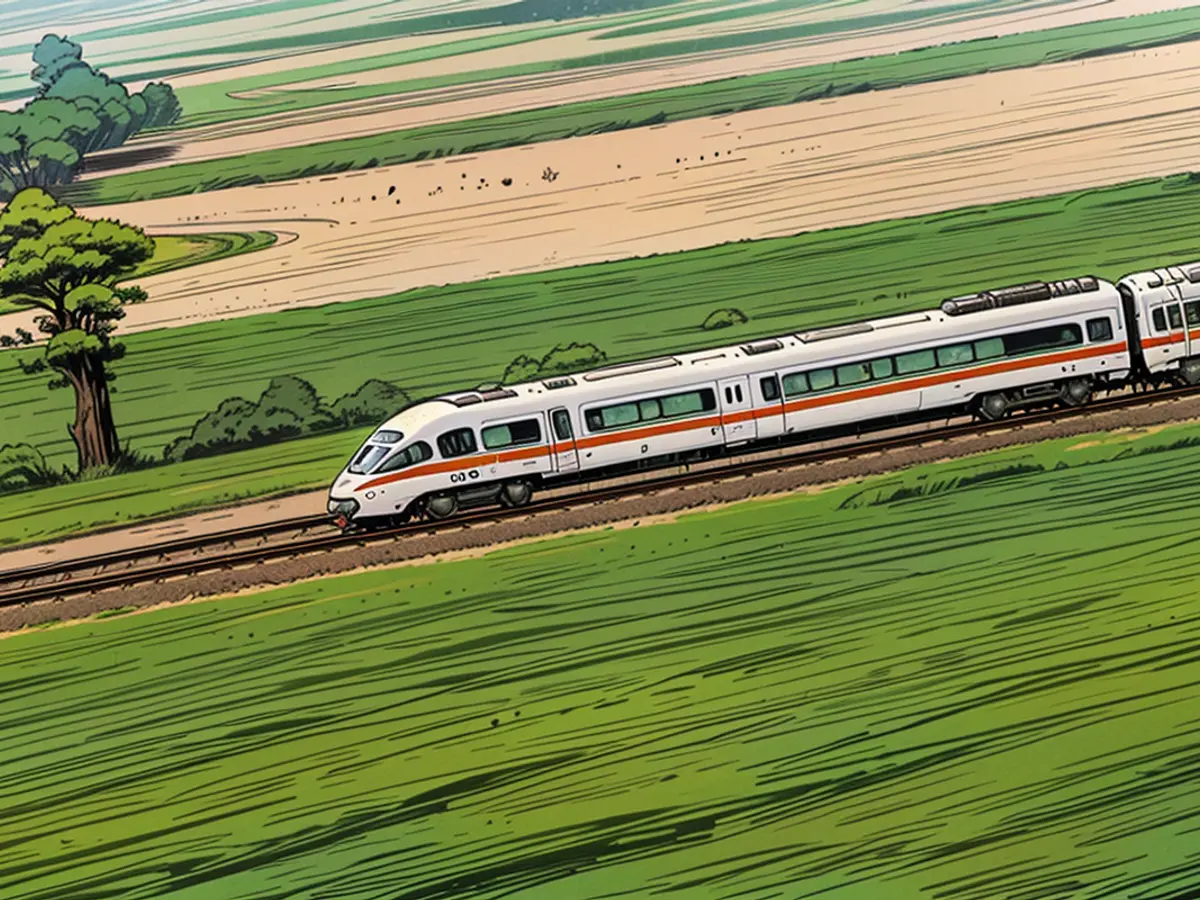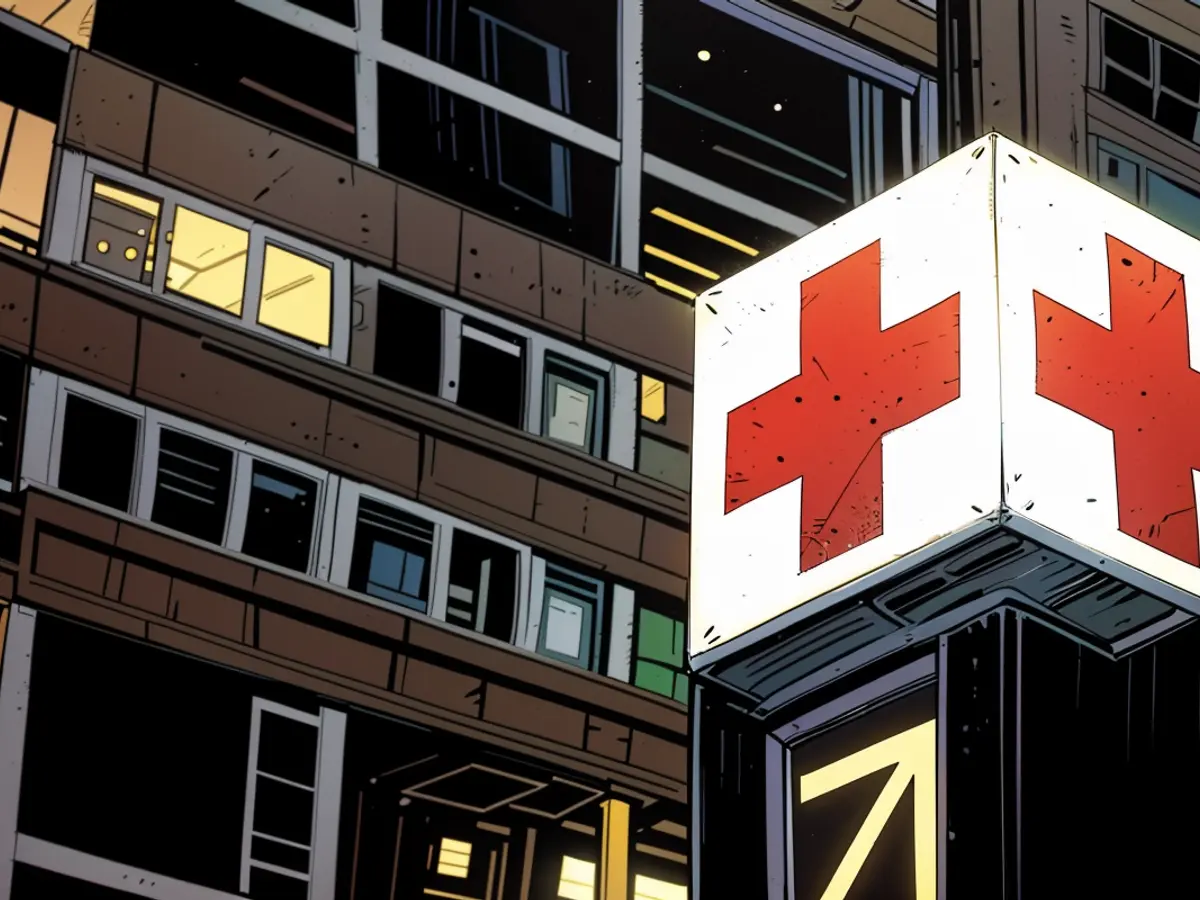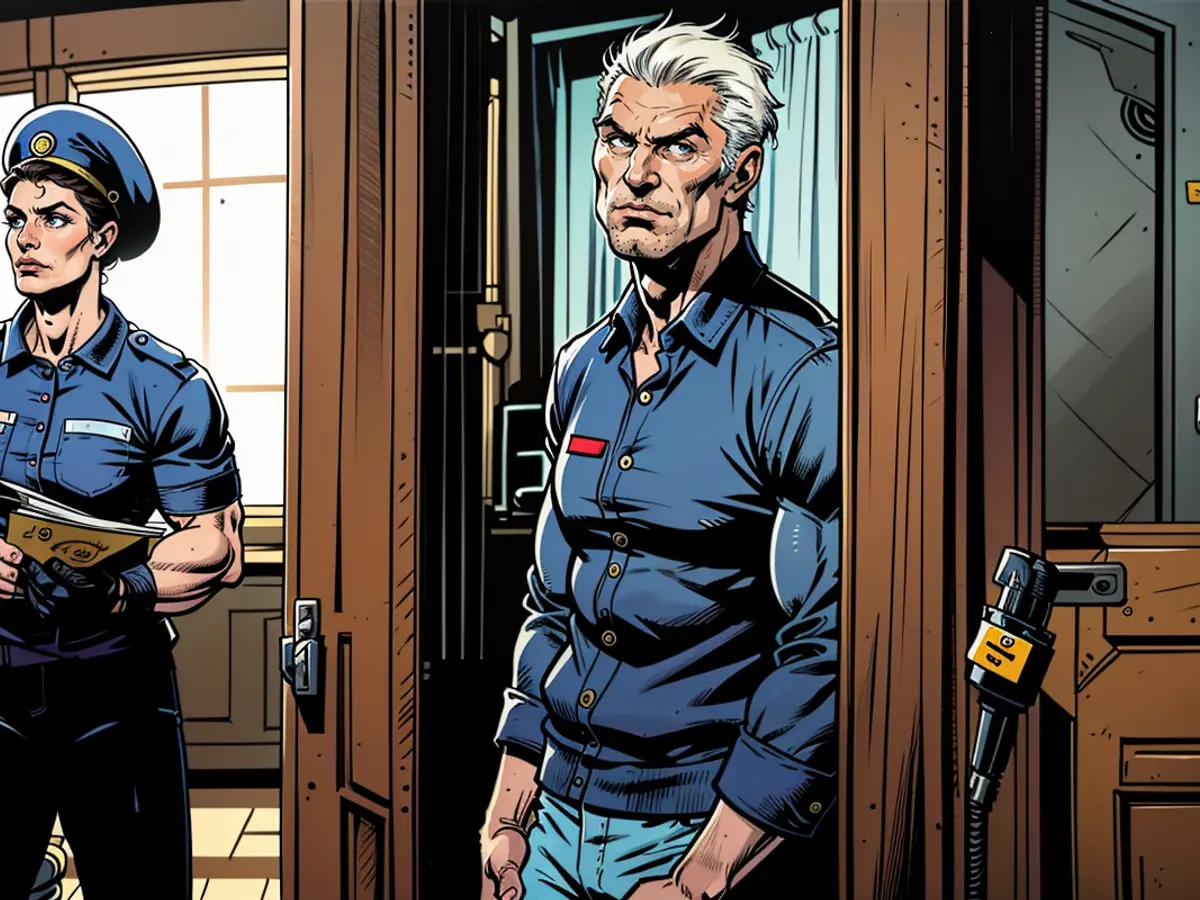All information regarding the French election
Political Earthquake in Paris: Responding to poor European election results, French President Macron calls for early elections for the National Assembly. How will power and majority relationships shift in Parisian parliament? Maps and infographics provide a snapshot.
France experienced a political earthquake after the 2024 European elections: State President Emmanuel Macron reacted to the less-than-stellar performance of his party and the increased strength of the French right by announcing snap elections for the National Assembly. These elections will take place in two rounds - on June 30th and July 7th - and are scheduled to determine French parliamentary power dynamics.
Macron's "Renaissance" party, a member of the "Besoin d'Europe" alliance along with the "Ensemble" parties and the Union of Democrats (UDI), only managed to secure 14.6% of the votes in the European elections. This falls significantly short of the right-wing populists of the "Rassemblement National," who snapped up an impressive 31.5% of the votes. The French Socialists came in third with 13.8% of the votes - just behind Macron's camp.
The majority of French regions saw the right outperform the rest, as indicated by a deep blue-lit France map depicting the election results.
Macron rationalized his decision to call for early elections that same evening, stating, "I cannot end this day like nothing has happened." He expressed trust that the French electorate would make the best-suited choice for itself and future generations.
With the parliamentary elections on the horizon, parties must shift their focus from Brussels to the political orientation of France. Macron's move launched a lightning election campaign, leaving very little time to prepare.
RN faction leader Marine Le Pen, a likely presidential candidate in 2027, viewed the unexpectedly timed elections confidently. "We are ready to take on government responsibility," she asserted.
In the past, the far-right party "Reconquête" led by Le Pen's niece Marion Marechal has expressed a willingness to form a coalition. The head of France's conservatives, Eric Ciotti, broke away from the convention that a coalition with the RN is off-limits and openly advocated for collaboration.
At the 2022 parliamentary election, Macron's party Renaissance competed as part of the ENS coalition (Ensemble pour la majorité présidentielle), a presidential majority alliance including not just centrist parties but left-wing and right-wing ones as well. In the first round of that election, Macron's ENS coalition tied with the left-wing NUPES list.
The NUPES was a significant contender in 2022: The social-ecological party bloc could rely on a broad base consisting of the Socialist Party, the Communist Party of France, the French Greens, and the left-populist party "La France insoumise." In the 2022 presidential election, NUPES candidate Jean-Luc Mélenchon nearly made it to the runoff. Macron ultimately defeated right-wing populist candidate Marine Le Pen in the second round.
Fast forward two years, the political landscape has started to shift: The right in France senses momentum after the European election results. Le Pen is thrilled with Macron's re-election announcement, calling it "a courageous decision" and demonstrating "sense of responsibility" from Ciot. If the RN manages to secure a majority, this would mark a return to "cohabitation" in France - a situation where the President and the strongest delegation in parliament belong to different political camps, and the President lacks a majority. This has occurred three times before in France, most recently between conservative President Jacques Chirac and socialist Prime Minister Lionel Jospin from 1997 to 2002.
Will the right-wing populist surge seen in the European elections continue in France? It remains to be seen.
Macron's rushed lightning campaign impacts the government camp as well. Following the parliamentary dissolution, the center alliance, which lost their absolute majority in parliamentary elections two years ago, instantly switched to election mode.
Stephane Sejourne, Foreign Minister and head of Macron's party Renaissance, urged the "gathering of all Republican forces." Sejourne's ministerial office plans to carry on operating during the election campaign.
Economy Minister Bruno Le Maire viewed the impending election as a significant event in the context of the success of right-wing populists in the EU election. He explained that the "outcome of this vote will have the most serious consequences in the history of the Fifth Republic." The outcome would decide "what the French nation will evolve into over the coming years and decades."
Several left-wing parties in France aim to collaborate in the impending election. On the same day as Macron's announcement, the Left Party, Socialists, Communists, and Greens agreed in principle to create a movement named "Front Populaire" (People's Front).
This hastily-assembled coalition has determined to field only a single mutual candidate in every of the 577 constituencies. "We want a program for social and ecological transformation to establish an alternative to Emmanuel Macron and oppose the racist agenda of the far-right project."
Nevertheless, the left-wing alliance is still divided. Although the left-wing parties had previously collaborated in the last parliamentary election two years ago and constituted a joint faction in parliament, the alliance effectively disintegrated in disagreement about the stance on the Gaza War. And while the Left Party and its leader Jean-Luc Melenchon were the main driving force two years ago, the Socialists, with Raphael Glucksmann's EU election success, now seek a more prominent position.
577 Constituencies, 577 Seats
The new alliance is already facing significant challenges. There is limited time remaining before the election date on June 30th for the Greens and the Left to harmonize their positions. The French parliament comprises two chambers: the Senate and the National Assembly, and the declared new elections only involve the National Assembly. The National Assembly comprises 577 seats. Candidates are elected in these same numbers through France's majority voting system over two rounds.
Only candidates who obtain an absolute majority, more than 50% of votes cast, in the first round may bypass the second round, granted they have achieved more than a 25% share of votes in their constituency.
In constituencies where no candidates earn this threshold, a second round will transpire one week later: Here, the two best-placed candidates from the first round contest all constituency candidates who secured more than an eighth of votes from the first round.
In general, the parties usually reach a consensus before the second round regarding mutual candidates, resulting in practically no more than three candidates per constituency. The seat is attained by the individual receiving the most votes. Thus, the re-election of the French National Assembly is predicted for the evening of July 7th.








